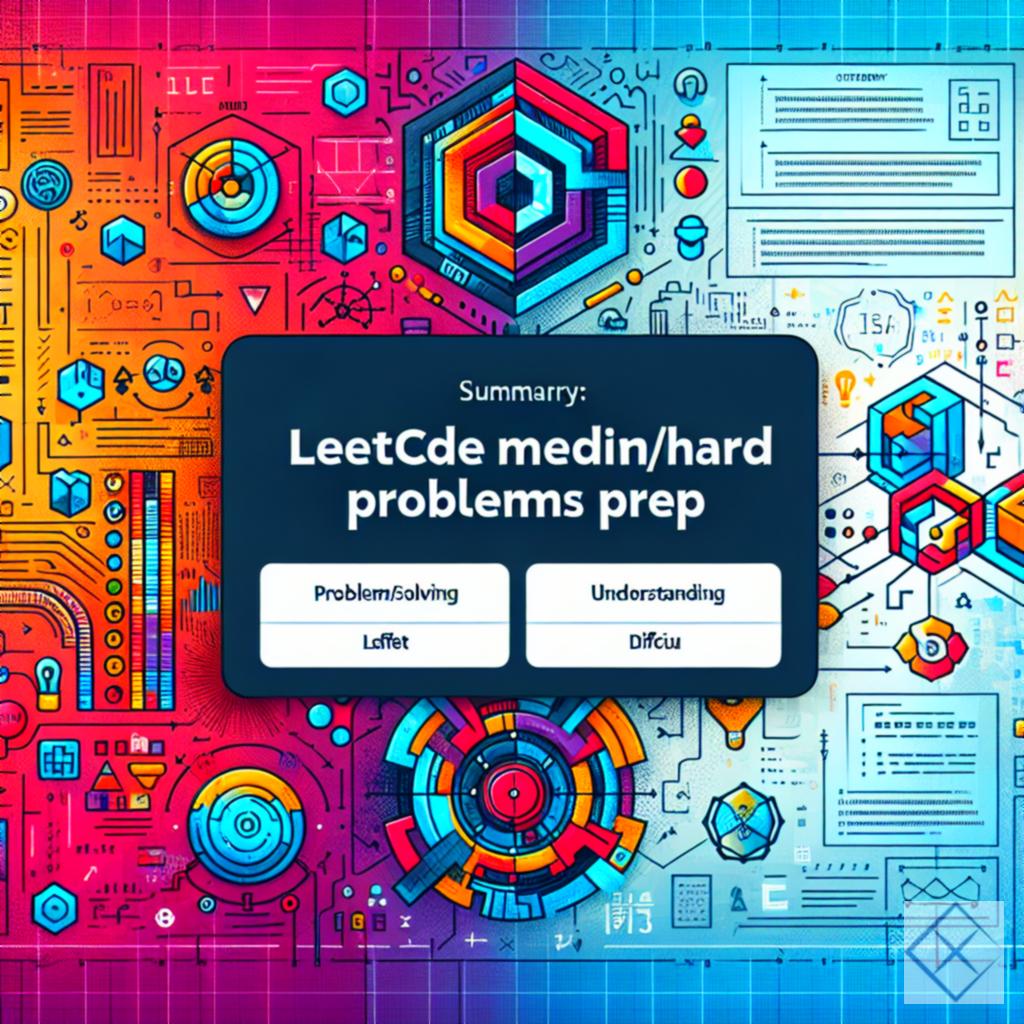Summary: Leetcode medium/hard problems prep

Summary: Leetcode Medium/Hard Problems Prep
In the realm of technical interviews, especially in software engineering, platforms like Leetcode have become central to preparation. The original post titled Leetcode medium/hard problems prep offers valuable insights into tackling these challenging problems effectively. This article will summarize the key takeaways from the post and highlight some of the most pertinent advice shared by the community.
Understanding the Landscape of Medium/Hard Problems
Leetcode’s medium and hard problems are designed to test not only your coding skills but also your understanding of algorithms and data structures. These problems often require the application of multiple concepts and the ability to think critically under pressure. The original post emphasizes the importance of breaking down problems into manageable parts, a technique that can significantly reduce complexity and facilitate better understanding.
Key Strategies for Success
-
Consistent Practice: The consensus among commenters is that regular practice is vital. Engaging with a variety of problems helps solidify your understanding and exposes you to different problem-solving techniques.
-
Mastering Data Structures: A deep understanding of fundamental data structures—such as arrays, linked lists, trees, graphs, and hash tables—is crucial. Many problems can be solved more efficiently if you recognize which data structure to apply.
-
Algorithmic Techniques: Familiarity with common algorithms, including dynamic programming, depth-first search, breadth-first search, and greedy algorithms, is essential. The post suggests that aspiring candidates should categorize problems based on these techniques to streamline their study approach.
-
Mock Interviews: Engaging in mock interviews simulates the pressure of an actual interview scenario. This practice can greatly enhance not only your problem-solving skills but also your ability to communicate your thought process clearly.
-
Analyzing Solutions: After attempting a problem, it’s crucial to analyze both your solution and the optimal solutions provided in the discussion. This practice will expose you to alternative methods and can deepen your understanding of the problem.
Common Misconceptions
One common misconception highlighted in the comments is the belief that simply solving a high number of problems guarantees success. While quantity can be beneficial, quality matters more. Understanding the underlying principles and being able to articulate your thought process is often more valuable than just being able to arrive at a solution.
A Lesser-Known Optimization
A lesser-known tip mentioned in the post is the importance of recognizing problem patterns. Many medium and hard problems on Leetcode often share similar structures or can be solved using analogous techniques. By categorizing problems and identifying these patterns, candidates can develop a more intuitive approach to solving new challenges. This optimization can save valuable time during both preparation and actual interviews.
Conclusion
The journey of preparing for medium and hard problems on Leetcode is undoubtedly challenging, but it is also immensely rewarding. By adopting a structured approach, engaging in consistent practice, and focusing on understanding rather than just solving, candidates can significantly enhance their problem-solving skills.
For more in-depth guidance and resources, check out the full blog post here: Leetcode Medium/Hard Problems Prep.
Happy coding!